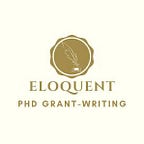When I think about my “Why” for grant writing the phrase that comes to mind is “I heal, because they heal”| Suna Manu
I am passionate about immigrant and refugee health, specifically immigrant and refugee adolescent mental health issues because of my own personal experiences and that of my community. My younger years were spent as a refugee moving from one country to the next. At the age of eight I was in a refugee camp where I was surrounded by a community of people that were going through individual life experiences, yet similar because we were all on the refugee camp for the same reason, and that was political turmoil in our home country. We all had similar but yet unique stories, but one thing we all knew we wanted was healing from the trauma that we experienced due to the war in our home country. We didn’t have the support needed to talk about the effect of the war in a healthy way that will bring about healing. Migrating to America was presented as that healing that we needed, and so everyone looked forward to passing their immigration interviews because America had healing for us. Mind you at this stage of my life, I did not know what mental health meant or what constituted a chronic traumatic effect. While we waited to migrate to America, we found other ways to freely talk about the war, and that happened through cracking jokes about the war. For example, if someone wanted to ridicule another person, they would say things like, “thank God for Charles Taylor because if it was not for him, you would not be here interviewing for an opportunity to go to America.” Charles Taylor was the dictator in Liberia, who started the 14-year war that left my country and its people in destitute.
Fast-forward, I came to America “where healing awaits me.” I am then placed in a community that looks like the one I left in the refugee camp, a school environment where the people look like me, but yet bullied me because I come from a different country. While people who did not look like me treated me like a charity case. Now, it was not about healing from the war but trying to survive in America, and that for me was so confusing as an adolescent. Not only was I confused, but my peers were too. No programs were in place to address our needs and explain the confusion that came with navigating a new culture in our new home. Once again, I did not know what mental health was and the phrase was not part of my vocabulary because culturally in general mental health is seen as a taboo in my side of the world.
Over the years, my peers sorted out other means of healing to deal with their trauma, and this has led to substance abuse, incarceration, death, and deportation. I saw my community move from having so much hope of finding healing in America to feeling so hopeless because we were forgotten. I became what they would call a success story for my community. However, I still struggle with my personal trauma and still saw my community struggle through trauma. With time, I came to learn and understand the phrase mental health and what constituted poor mental health. I also came to realize that there were limited resources available to address our mental health needs as a community. I am a firm believer of the phrase “knowledge is power”, because understanding what my community is going through has enacted a passion in me to want to help change the narrative for adolescents in my community.
After completing my undergraduate degree, I took it upon myself to start a youth praise dance group. I was on a mission to help build a safe environment where the young people in my community can freely express themselves, share their struggles, and in the process find healing through a shared experience of their social support provided by this dance group. This was something my peers and I didn’t have. When I started this dance group, I thought that I was providing a space for the young people in my community to heal and address their personal trauma through arts. However, this became a space that I would later use for my own healing. Being a part of the lives of the young people in my community, gives me a sense of purpose, one that I lost four years ago due to the death of a loved one. This sense of purpose-led me to apply for my Masters in Public Health and now, a Ph.D. in public health.
These past three years, I have been challenged to “dig in deeper” and view the needs of my community from a public health perspective. This also meant securing funding to sponsor research to assess and study the health needs of my community. I have never written a grant on my own, but with the help of my Mentor Dr. Rhonda BeLue, I have contributed to two successful small grants that were written for the health interest of my community. I have come to better understand the importance of grant writing in building something sustainable to address mental health trauma in my community. I need to heal and I am realizing that my healing is tied to that of my community; and grant writing has proven to be a weapon in disguise. This class has been crucial in setting the stage for acquiring the tools needed to bring about a long and overdue healing for me and my community. This class has been a refresher in remembering my why and holding on to it like Dr. Iwelunmor would say.
